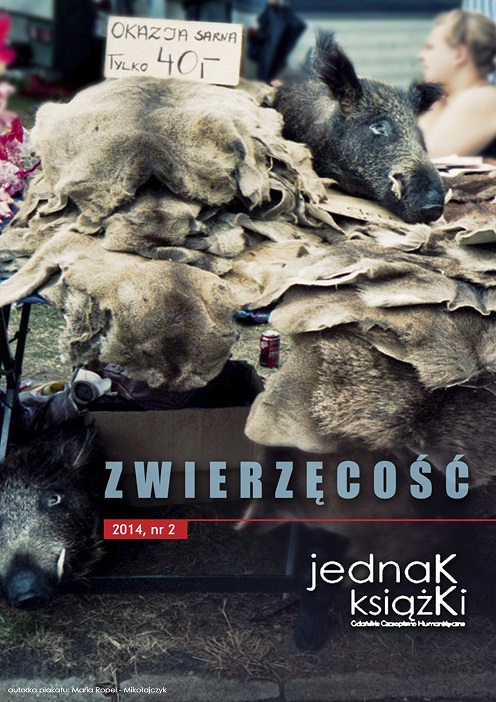Trapped in the Anthropocentrism. Thesis on novel 'Under the Skin' by Michel Faber
Abstract
This article deals with the problem of anthropocentrism in Michel Faber’s novel Under the Skin. One of the main problems considered here is the border that separates what is human from what is non-human. This novel id described as the act or gesture of solidarity with animals. But not in constructing a human-animal community or a manifest about animal rights struggle. Rather an annulment of the privileged access of the homo sapiens to humanity and its envelopment in the animal condition. Isserley, the chief female protagonist Fabre’s novel, is representative of a species that established on earth production factories of human meat. This article consider Under the Skin as the novel, that operates upon the fundamental cognitive opposition “human-animal” and upon a whole range of categories that separate the world of humans from non-humans: subject-object, mind-instinct, the hunter-the prey, free-captured, feeding-fed, and, finally, consumer-food. Rather than destroy the fundamental cognitive categories of human-animal, Faber shifts them, and this deprives them of their obviousness and naturalness, turning them against homo sapiens.

 Academic Scientific Journals
Academic Scientific Journals




